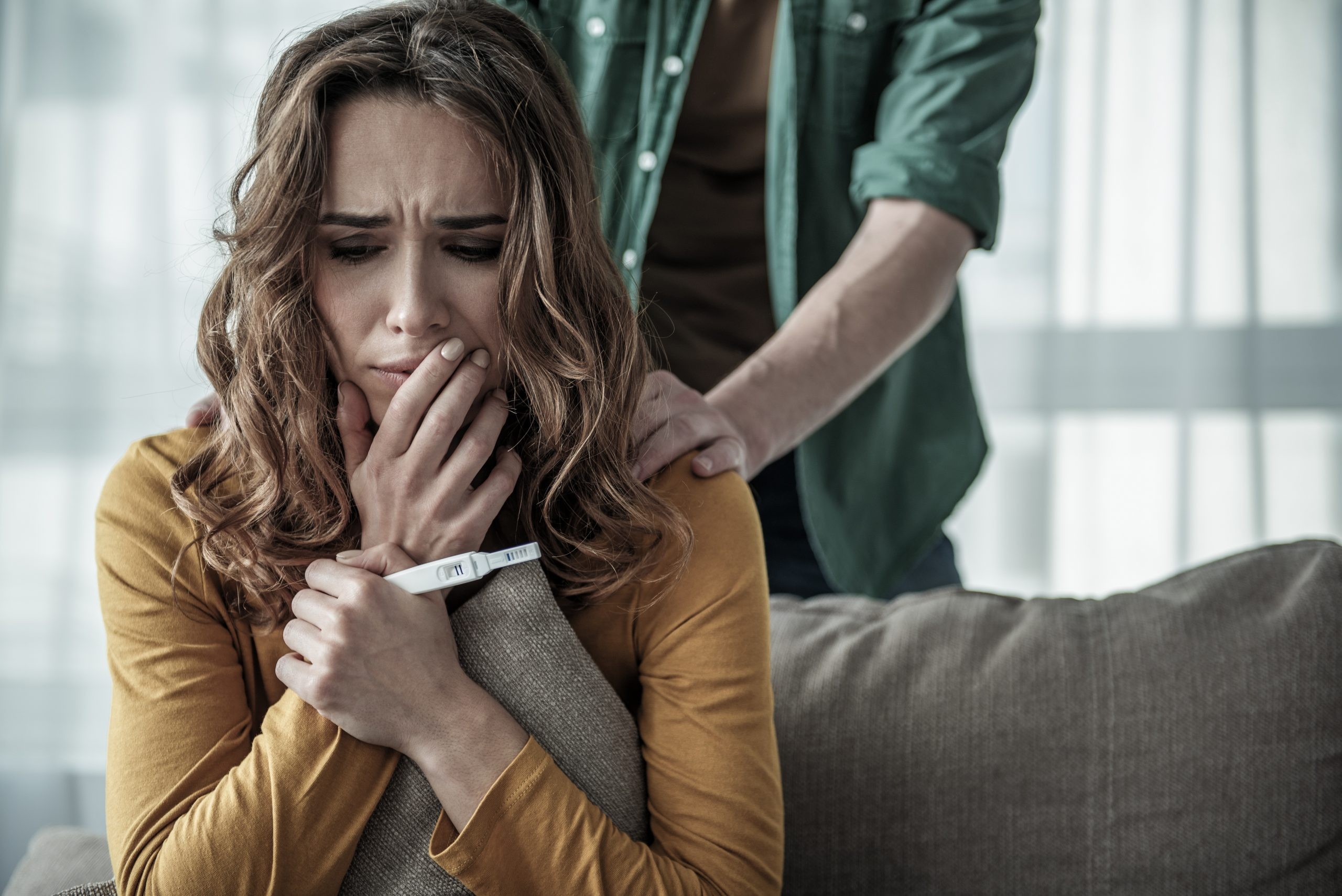Pregnancy and giving birth is considered a major event in a woman’s life. The experience is often described as a time of excitement and great joy; however, it can also be a significant source of stress and worry. During this time, women typically report worries about the health of their developing baby, the pain of childbirth and the possibility of medical complications during delivery. These are very reasonable and common concerns that most women experience to some degree and are usually dealt with through the provision of medical and allied health support, education and social support.
For some women, the anxiety associated with bringing a child into the world can be severe and begin to interfere with relationships, daily functioning and overall wellbeing. These women often report experiencing persistent worry that is difficult to ‘shut off’ and find it difficult to relax. Some women report becoming highly preoccupied with researching topics related to foetal development, labour and delivery and may spend several hours a day researching these topics.
The term ‘tokophobia’ was introduced by researchers (Hofberg & Brockington) in the early 2000s to describe intense fear and pathological dread of pregnancy and childbirth despite a deep desire to have a baby. Tokophobia is a type of ‘specific phobia’ –an anxiety disorder in which individuals experience excessive and intense fear about a particular situation or object. Women who present with symptoms of tokophobia may engage in behaviours to avoid becoming pregnant despite desperately wanting to have children. Some women refrain from sexual intercourse out of fear of falling pregnant or become overly meticulous about contraception use, often opting to use multiple methods of contraception at once. Women who have tokophobia may insist on having caesarean sections despite no medical indication for this method of delivery. In some cases, women may decide to terminate a pregnancy in the absence of any medical reasons to do so.
Tokophobia Types
Two types of tokophobia are described in the literature and appear to be based on different causes. They are described below.
- Primary tokophobia occurs in women who are first time mums. This type of tokophobia can begin as early as adolescence. Women who experience primary tokophobia may have developed a morbid fear of pregnancy and childbirth after witnessing or being exposed to horror birth stories. It can also occur in women who have a history of experiencing sexual assault or abuse.
- Secondary tokophobia occurs after experiencing a traumatic delivery in the past. Traumatic childbirth experience can arise during instrumental or operative delivered when there is fetal distress, experiencing severe pain during delivery or experiencing a significant perineal injury. Secondary tokophobia can also occur in women who have experienced miscarriage, stillbirth or termination of pregnancy.
Tokophobia can also present concurrently with prenatal depression. Intrusive beliefs related to the inability to deliver a baby or fears about fetal and maternal death are commonly reported amongst these women.
Who is most at risk of developing tokophobia?
Research has identified the following factors that may increase the likelihood of women developing tokophobia. It is important to note that having a trait or experience that is considered a ‘risk factor’ does not automatically mean that an individual will develop the condition. Rather, it helps professionals identify the women that may require additional support through pregnancy and postnatally. With adequate support, women who have any of the following traits or experiences are able to have positive pregnancy and childbirth experiences and outcomes.
- Previous or current mental health diagnosis e.g. generalised anxiety, depression.
- Limited social support and relationship difficulties,
- Personality variables such as perfectionism, anxiety-prone personality styles, low self-esteem, high neuroticism.
- History of sexual assault or abuse
- Women who have experienced a traumatic birth.
- Exposure to birthing horror stories
- Distrust of medical professionals
Treatment and Support
Access to support is crucial for women who experience tokophobia symptoms to ensure positive outcomes for both mother and baby. A multidisciplinary team including a GP, midwife, obstetrician, social workers and psychologists are usually involved in providing education, guidance and reassurance. Some women also find it helpful to connect with other women who share similar experiences.
Psychological treatment of tokophobia generally focuses on providing education about the factors that cause and maintain anxiety as well as support with developing skills for managing anxiety symptoms as they arise and escalate. A perinatal psychologist may assist with exploring and understanding important psychological factors that are linked to how an individual perceives and copes with stress such as attachment patterns, expectations about pregnancy and birthing, early childhood experiences, relationship issues and any history of trauma. This information is important for developing an individualised treatment plan that is in line with the client’s personal values and goals. Antidepressant medication may be helpful as an adjunct to psychotherapy and this could be considered in consultation with a psychiatrist.
References
Bhatia, M. and Jhanjee, A., 2012. Tokophobia: A dread of pregnancy. Industrial Psychiatry Journal, 21(2), p.158.
Demšar, K., Svetina, M., Verdenik, I., Tul, N., Blickstein, I. and Globevnik Velikonja, V., 2018. Tokophobia (fear of childbirth): prevalence and risk factors. Journal of Perinatal Medicine, 46(2), pp.151-154.
Greathouse, K., 2016. The “Nightmare” of Childbirth: The Prevalence and Predominant Predictor Variables for Tokophobia in American Women of Childbearing Age. Journal of Prenatal and Perinatal Psychology and Health, 31(1).
Striebich, S., Mattern, E. and Ayerle, G., 2018. Support for pregnant women identified with fear of childbirth (FOC)/tokophobia – A systematic review of approaches and interventions. Midwifery, 61, pp.97-115.

We've tailored the services at RWA Pyschology - Family Matters to all age groups from young children to adolescents and adults - and we have specialists in crisis, short/medium term counselling and longer term psychotherapy.
Call RWA psychology for an appointment with one of our psychologists.
